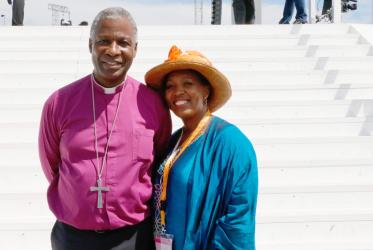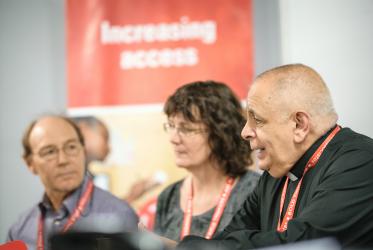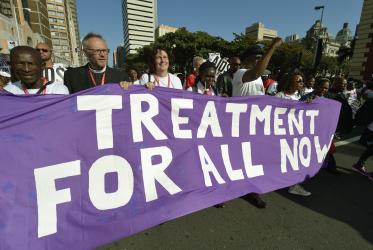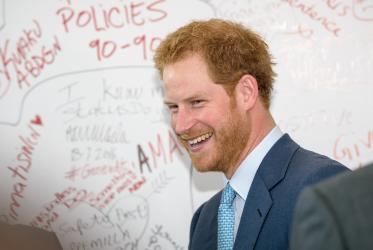Displaying 41 - 60 of 106
WCC leader offers Steve de Gruchy Memorial Lecture
24 April 2018
WCC-EHAIA pioneer receives honorary doctorate
21 March 2018
#WCC70: Churches as “freedom agents”
12 February 2018
#WCC70: Les Églises, des «agents de la liberté»
12 February 2018
G7 must address famine
22 May 2017
Le G7 doit lutter contre la famine
22 May 2017
AIDS 2016: Coverage of faith response to HIV
22 July 2016
Star power shines light on AIDS epidemic
21 July 2016







